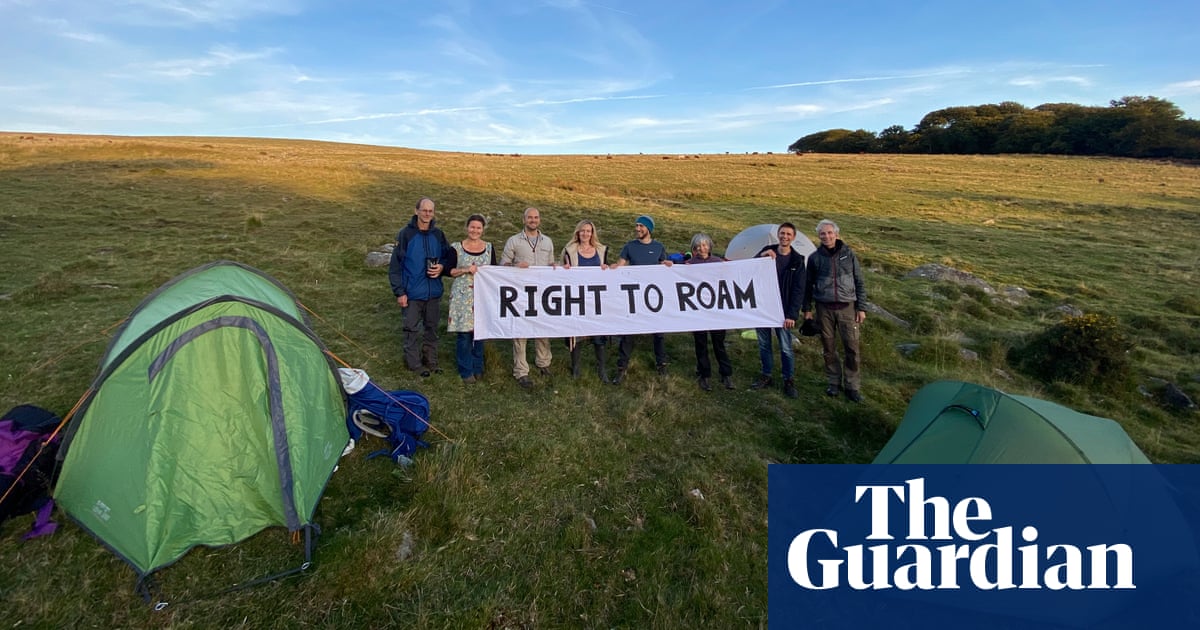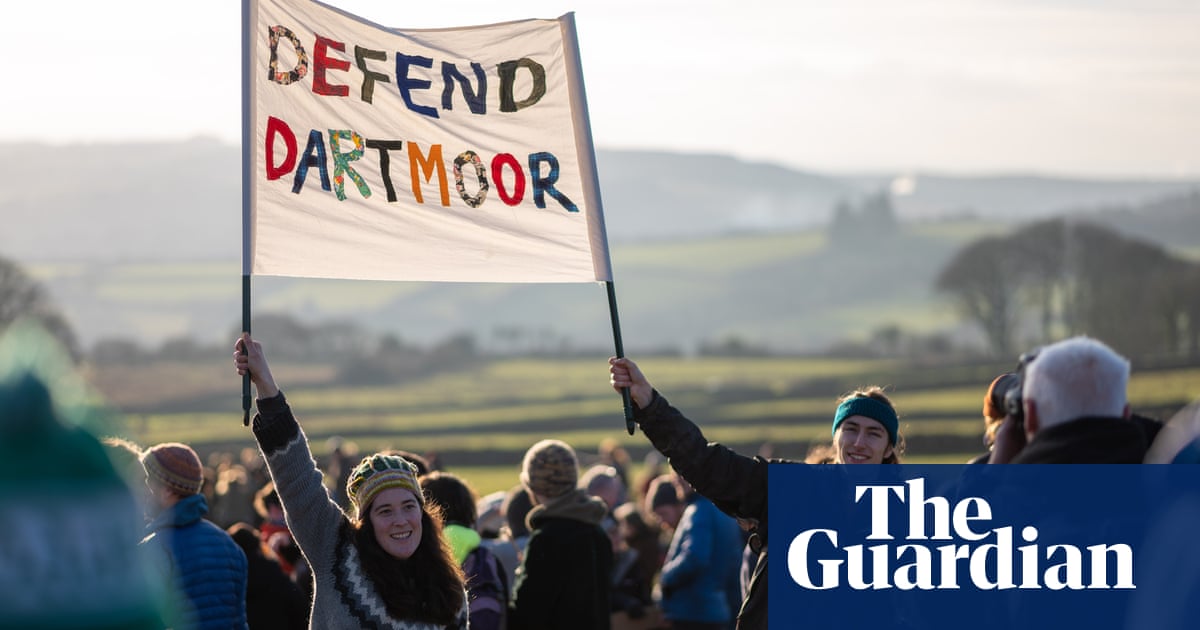
The right to wild camp in England and Wales has been lost, after a wealthy landowner successfully brought a case against Dartmoor national park, the last place it was possible without seeking permission.
The park authorities are understood to be consulting with lawyers and strengthening their case before appealing against the decision, which has dismayed nature lovers and right-to-roam campaigners across the country. In response to the case, the Labour party has vowed that if it wins power, it will expand the right to roam and wild camp across England.
Alexander Darwall, a hedge fund manager and Dartmoor’s sixth-largest landowner, brought the case against the national park, arguing that the right to wild camp on the moors never existed. Darwall, the owner of the 1,619-hectare (4,000-acre) Blachford estate on southern Dartmoor, offers pheasant shoots, deerstalking and holiday rentals on his land.
Because there was an assumed right under the Dartmoor Commons Act 1985 to wild camp in the whole national park, he argued that he was unable to order individual campers off his land, and sought to get a declaration from the judge that this right did not exist.
Sir Julian Flaux, the chancellor of the high court, ruled that Darwall’s lawyers were correct and that the right did not exist across Dartmoor. The ruling is effective immediately, and means that Darwall can move people off his land from Friday. “In my judgment, on the first issue set out at [14] above, the claimants are entitled to the declaration they seek that, on its true construction, section 10(1) of the 1985 Act does not confer on the public any right to pitch tents or otherwise make camp overnight on Dartmoor Commons. Any such camping requires the consent of the landowner.”
However, Timothy Leader, acting for the national park, said there were grounds for appeal in a document submitted to the high court on Friday. He said “the consequence will be that wild camping and other forms of open-air recreation entered into on foot or by horseback on the commons, which involve the occupation of land to any material extent without the consent of the landowner and commoners, will be unlawful. That is not the current state of affairs in the Dartmoor national park and on its commons in particular, wherein the public gain access on foot and by horseback to participate in a wide range of recreational activity which is not solely ambulatory in character.”
The shadow environment minister Alex Sobel vowed that if in power, Labour would extend the right to roam. He said: “Our national parks should be open to all and access to Dartmoor is integral to that. Labour will expand the right to roam as part of our programme for government. Our natural spaces are here for us all to share for biodiversity, wellbeing and equity.”
Campaigners plan to protest by continuing to wild camp, and are planning a protest on Darwall’s land. Lewis Winks, from The Stars are for Everyone campaign, which is fighting for the right to wild camp on the moor, said: “To lose this right at a time when nature connectedness in Britain is the lowest across the whole of Europe is a travesty. We should be increasing, not impairing, people’s ability to spend time in nature.
“We pledge to continue to fight for access to wild places, and for future generations to be able to sleep under the night sky; to have experiences which echo through lives.”
The Stars are for Everyone campaign’s Emma Linford, an expedition leader and wilderness guide who has led groups on Dartmoor and who was in court for the hearing, said: “From the outset it was clear that this whole case had nothing to do with the preservation of Dartmoor’s delicate ecology.
“Instead, this was always one landowner’s naked attempt to find any pretext to roll back the public’s right to connect with nature on national parkland.”
The case hinged on whether wild camping counts as recreation. The act under which people assumed the right to camp does not expressly mention the activity, but says visitors are free to enjoy outdoor recreation if they reach the moors on foot or horseback. Darwall’s lawyers argued that camping was not recreation, but that the law allowed for activities such as walking and picnicking.
Arguing for the landowner, Timothy Morshead KC said the law did not mention camping and camping was not included, but Timothy Leader, arguing for the national park, said the law was purposely written to be as wide as possible to include all kinds of recreational activities. He added that there was a list of proscribed activities, such as killing animals or lighting fires, and camping was not on it.
The defence stressed how seldom “backpackers roaming with tents”, which include participants in the Duke of Edinburgh awards and Ten Tors challenge, caused any problem, stating that in 36 years of the bylaws being in place, no appeals had ever been made against them.
Campaigners said the majority of wild campers were respectful, and that the minority breaking the rules would camp anyway even if it was outlawed. They argued that the right to wild camp was precious and should not be taken away. Hundreds of people attended rallies in support of the campers, on Dartmoor and outside the high court.
Responding to the judgment, Darwall and his wife, Diana, said: “We are grateful to the high court for its thoroughness in clarifying the matter. We now hope to engage with the Dartmoor National Park Authority, so that we can improve outcomes on the ground. Working together, we can improve conservation of the Dartmoor commons and improve the experience for those enjoying the commons legitimately.”












